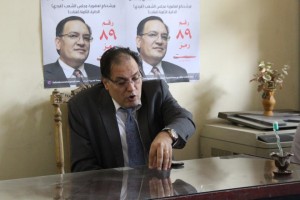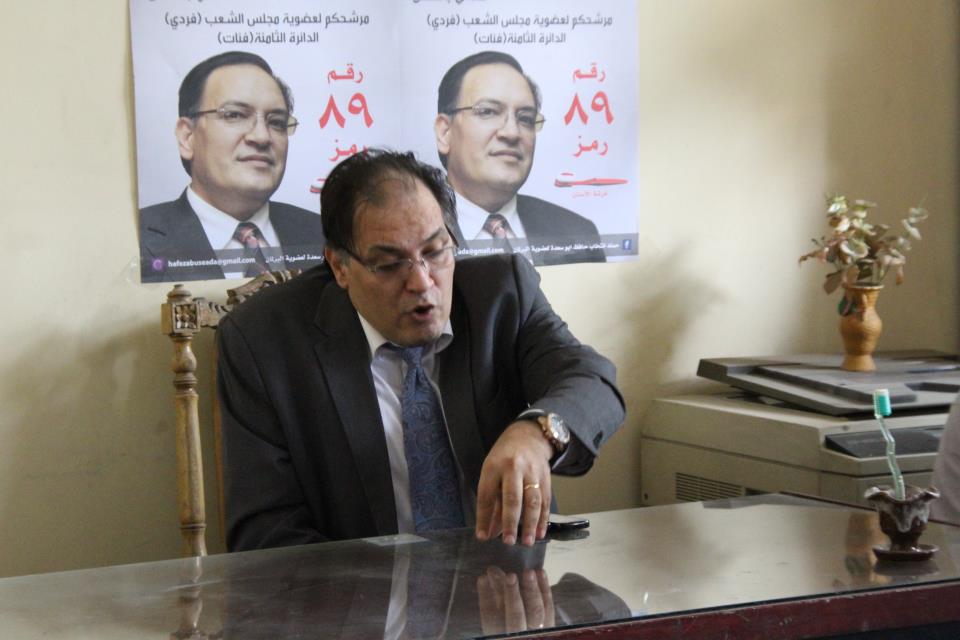
Civil society in Egypt is strong and diverse, according to Hafez Abu Saada, Member of the National Council for Human Rights (NCHR) and Egyptian Organisation for Human Rights Chairman. He added that there are non-governmental organisations and the National Council for Human Rights.
Abu Saada expressed optimism towards the improvement of the situation, especially with the presence of a constitution. He added that he is not worried about the local situation, following Egypt’s Universal Periodic Review at the UN Human Rights Council.
Talking to Daily News Egypt, Abu Saada said organisations have the right to criticise the human rights situation in Egypt, as long as it does not serve a political party. He added that the criticism should also respect the constitution and acknowledge the current instability in Egypt.
How do you see the future of human rights in Egypt?
Human rights in Egypt is strong and various, as there are non-governmental organisations and the National Council for Human Rights. I am optimistic about the situation and improvement, especially with a constitution. I am not worried about the local situation following Egypt’s report which was issued in front of the UN Human Rights Council.
What is your evaluation for the National Council for Human Rights a year after its foundation?
Performance is good. Our role is to give recommendations to the government, which we have done already regarding the list of prisons, the Protest Law and non-governmental organisations, as well as sending many complaints to the public prosecution.
Some people in civil society accuse the council of not doing its job. How do you respond to that?
The National Council for Human Rights is only an advisory authority, and this is how it is run in the rest of the world. Its role is to give recommendations and notes on the human rights situation. Three members of the current council participated in drafting the constitution and the issue concerns people who think that our role is to condemn non-governmental organisations.
What do you think of organisations’ complaints regarding the human rights situation in Egypt?
Organisations have the right to criticise human rights in the country as long as they do not serve a certain political party and go along with the constitution, while considering the current instability in the country.
Does Human Rights Watch play a political role?
Human Rights Watch plays a political role for the international purpose of the necessity to take procedures against Egypt and investigate violations. I believe this is not of benefit to human rights in Egypt, but will be beneficial to the Muslim Brotherhood only, and international organisations should not fall to this trap and become part of a political game.
What is your evaluation of the cooperation between the prosecution and the council, especially regarding complaints of pre-trial detentions?
In fact, the public prosecution meets the demands of visits to prisons, but we need more regulations on pre-trial detentions. I understand that the security situation following 30 June has not been good, but it is time to decrease the strictness on pre-trial detentions.
Do you believe it necessary to issue the anti-terrorism law?
I believe we need an anti-terrorism law after a resolution by the United Nations Security Council a few days ago, which was issued to criminalise funding for the war in Iraq and Syria, obliging us to amend our internal regulations to be in line with the international legislations, as well as amending Article 78 of the state security crimes section externally. The law regarding punishment is a step towards getting in the way of funds to the terrorist groups, and the National Council has to look into the draft law and issue it before forming the Egyptian Parliament.


